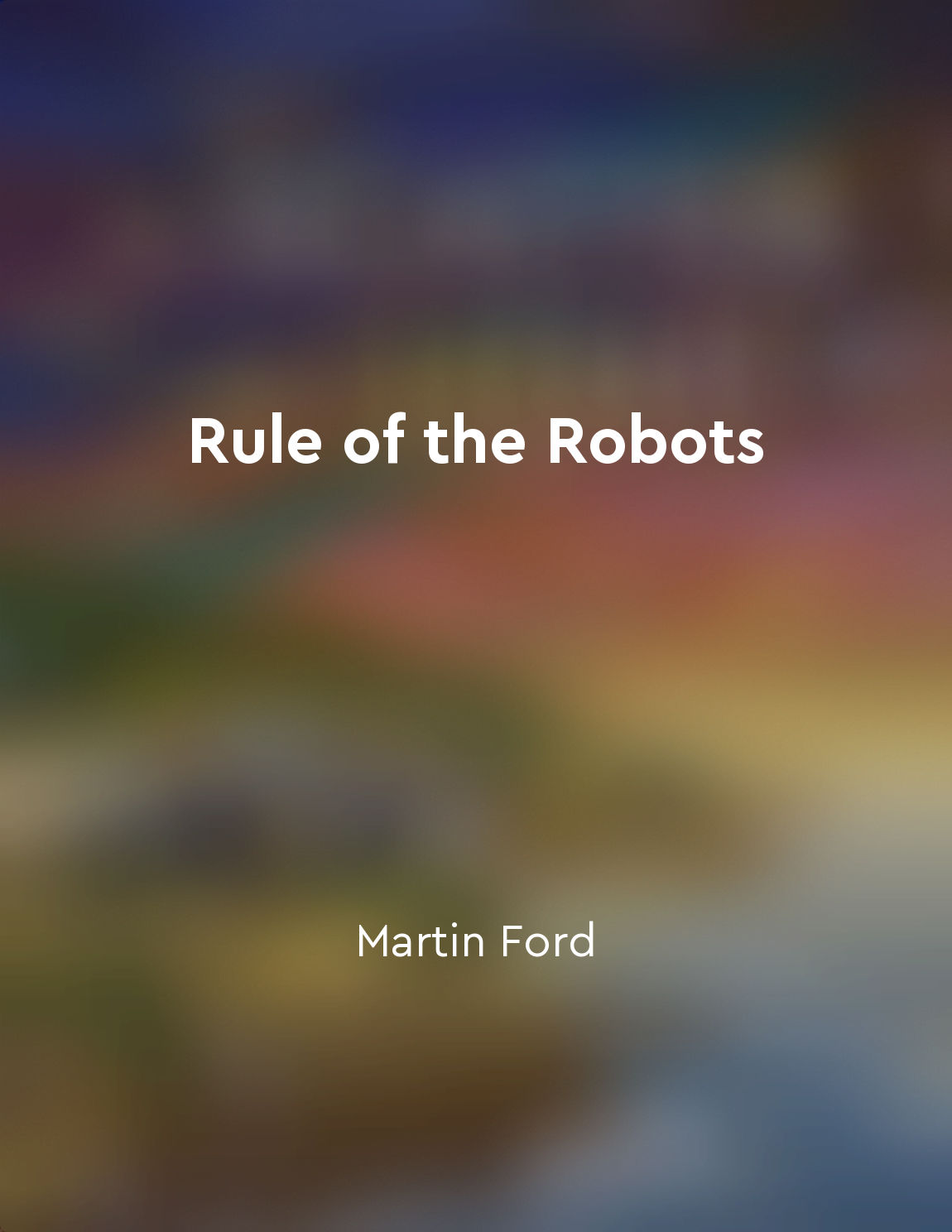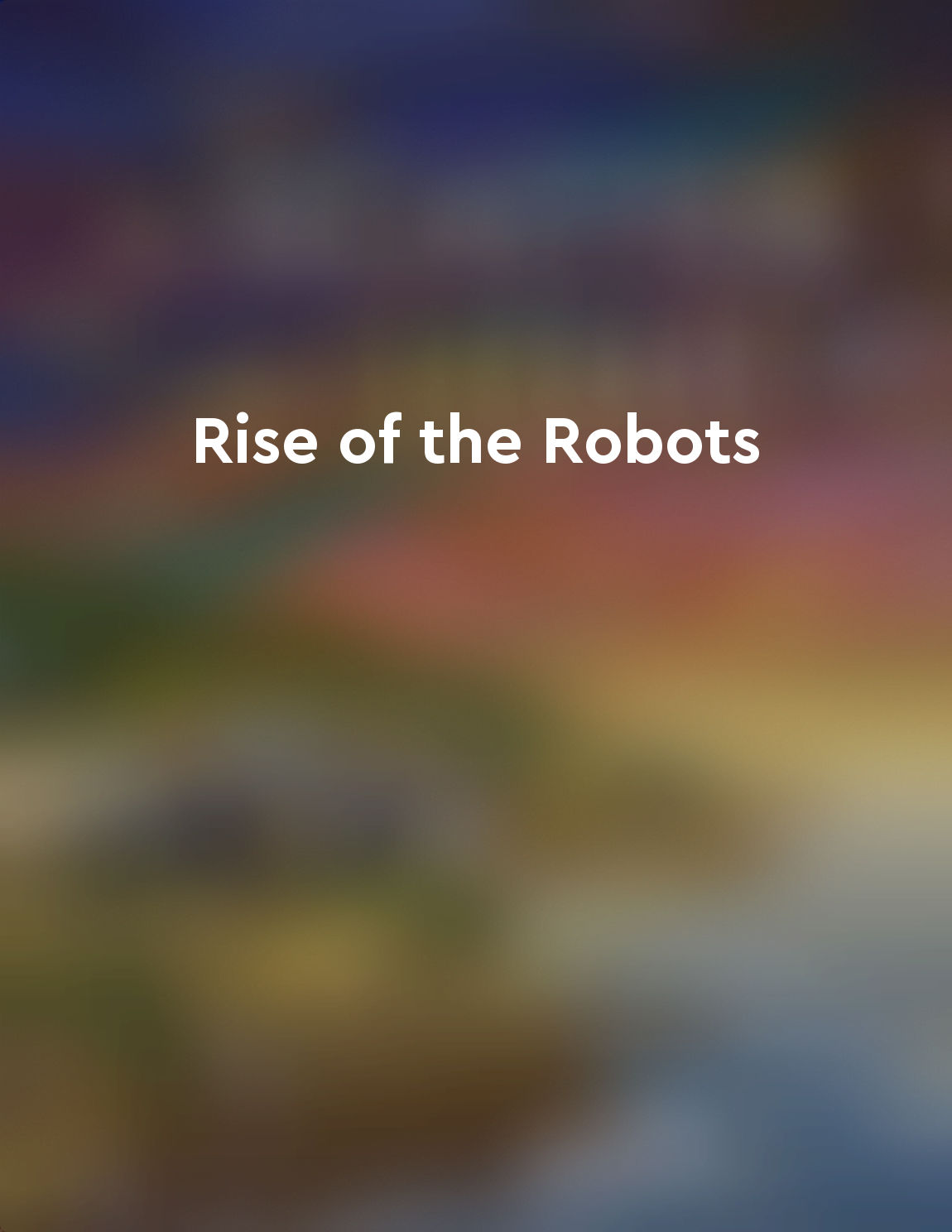Robots and automation are replacing human workers in many industries from "summary" of Rule of the Robots by Martin Ford
In the modern economy, we are witnessing a significant transformation driven by the rapid advancement of technology. The rise of robots and automation has led to a fundamental shift in the way work is done across various industries. This shift is characterized by an increasing reliance on machines to perform tasks that were once the domain of human workers. As a result, many jobs that were traditionally performed by humans are now being automated, leading to a reduction in the need for human labor. One of the key factors driving this trend is the increasing capabilities of robots and automation technology. These technologies have become increasingly sophisticated, allowing them to perform a wide range of tasks with a high degree of accuracy and efficiency. This has made them an attractive option for employers looking to streamline their operations and reduce costs. As a result, many industries have seen a growing trend towards automation, with robots taking over roles that were previously performed by humans. This shift has had significant implications for the workforce, with many workers finding themselves displaced by machines. As robots and automation become more prevalent in the workplace, many jobs that were once considered secure are now at risk of being automated. This has led to growing concerns about the impact of automation on employment, with many workers fearing that they will be replaced by machines. Despite these concerns, the trend towards automation shows no signs of slowing down. In fact, experts predict that the pace of automation will only continue to accelerate in the coming years, as technology continues to advance. This has led to a growing debate about the future of work and the role that humans will play in an increasingly automated economy. As we move forward into this new era of automation, it is clear that the relationship between humans and machines will continue to evolve. While robots and automation offer many benefits in terms of efficiency and productivity, they also raise important questions about the future of work and the role of humans in the economy. It is clear that we are entering a new era in which robots and automation will play an increasingly prominent role in many industries, leading to significant changes in the way we work and live.Similar Posts
Transparency is crucial in automated decisionmaking
The idea that transparency is crucial in automated decision-making is a foundational principle in discussions about the ethics ...

Collaboration between governments and tech companies is key
The relationship between governments and tech companies is a critical area that demands careful attention. On one hand, governm...

The rise of robots is causing concern about the future of employment
The pace of technological progress has accelerated dramatically in recent years, bringing with it the rise of robots and automa...
Debate over ethics of algorithm use
The rise of algorithms in decision-making has sparked a heated debate over their ethical implications. As machines become more ...

The impact of automation on employment is a pressing issue that needs to be addressed
The rapid advancement of technology and the rise of automation have brought about significant changes in the workforce. As mach...
Automation offers new opportunities for creativity
Automation does not stifle creativity as some fear; rather, it opens up new avenues for creative expression. By taking care of ...

Traditional jobs are being redefined by robots and technology
In today's rapidly evolving economy, the role of technology, particularly robots, has become increasingly prominent in the work...

The future of work will be shaped by the integration of robots and AI
The rapid advances in robotics and artificial intelligence are fundamentally transforming the labor market. As technology conti...
